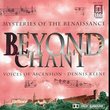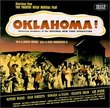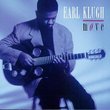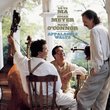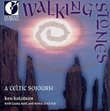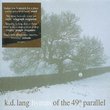| All Artists: Samuel Adler, Howard Hanson, Alan Hovhaness, Charles Ives, Ron Nelson, Daniel Pinkham, Robert Starer, Randall Thompson, Elizabeth C. Patterson, James E. Jordan Jr. Title: Make His Praise Glorious: American Psalmody, Vol. 1 Members Wishing: 1 Total Copies: 0 Label: Gloriae Dei Cantores Original Release Date: 1/1/2010 Re-Release Date: 10/13/1998 Album Type: Import Genre: Classical Styles: Opera & Classical Vocal, Historical Periods, Modern, 20th, & 21st Century Number of Discs: 1 SwapaCD Credits: 1 UPC: 709887002526 |
Search - Samuel Adler, Howard Hanson, Alan Hovhaness :: Make His Praise Glorious: American Psalmody, Vol. 1
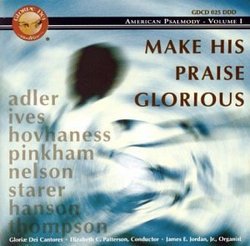 | Samuel Adler, Howard Hanson, Alan Hovhaness Make His Praise Glorious: American Psalmody, Vol. 1 Genre: Classical Recording of twentieth-century American psalm settings features many recorded premieres, including works by Hovhaness, Nelson, Adler, and Hanson. Other composers included are Ives, Starer, Thompson, and Pinkham. This album... more » |
Larger Image |
CD DetailsSynopsis
Album Description Recording of twentieth-century American psalm settings features many recorded premieres, including works by Hovhaness, Nelson, Adler, and Hanson. Other composers included are Ives, Starer, Thompson, and Pinkham. This album was recorded in the splendid setting of Methuen Memorial Music Hall with its marvelous organ and acoustics. | Gloriæ Dei Cantores has a mission to preserve and perform the finest sacred music. From its beginnings, the choir has also felt a special mission and an affinity for American music. There is a rich bounty of great American music that is rarely heard, and for that reason, Gloriæ Dei has now embarked on a series of recordings of American psalm settings. Similarly Requested CDs
|
CD ReviewsA remarkable compilation of 20th century American psalmody. Bob Zeidler | Charlton, MA United States | 05/19/2004 (5 out of 5 stars) "Elizabeth C. Patterson and her Gloriae Dei Cantores (Singers to the Glory of God) chorus had been total unknowns to me prior to about a year ago. The group had been brought to my attention then by Mark O'Connor's publicist, at which time he had been the guest artist on their "Appalachian Sketches" album. But that album, excellent as it was, turned out to be just the small tip of a significant iceberg in terms of choral singing, and particularly the American traditions of sacred choral singing over the last half-millennium.
I've since collected quite a few of their albums, and, to switch metaphors, this "Make His Praise Glorious" album may turn out to be the mother lode. Actually a religious choral community based on Cape Cod, MA, Gloriae Dei Cantores members have literally dedicated their lives to this music genre. In addition to recording at their "home base," they have also recorded frequently in Mechanics Hall, Worcester, MA and at Methuen Memorial Hall, Methuen, MA (where this particular recording was made). (For those who aren't familiar with the organ tradition in America, Methuen Memorial Hall is where the original organ in Boston's Symphony Hall found its "final resting place" after the formation of the Boston Symphony Orchestra rendered it redundant. Fully restored, reconstructed and revoiced in 1947, this organ is one of the finest historical organs in the U.S., and its permanent home-Methuen Memorial Hall-was built specifically for its properties, and for its perpetual preservation as well.) The music on this album is as wide a variety of settings of the Psalms by 20th century American composers as one could ask for, covering a variety of liturgical points of view. Samuel Adler and Robert Starer (both Jewish refugees from Germany and Austria respectively who settled in the U.S and built significant careers in music afterwards) take their own individualistic approaches to their choices of psalms. Adler's, in English, is heroic, resplendent with two trumpets supporting the chorus. Starer's, in Hebrew, with piano accompaniment, are more reflective and smaller in scale, but equally well-done. Alan Hovhaness's "Make a Joyful Noise" is a cantata in four parts based on Psalms 54, 55 and 66. Like much of Hovhaness's music, with its reflection of his Armenian roots, "Make a Joyful Noise" is otherworldly; simply a beautiful piece of writing. The opening Prelude is for trombone solo and organ; quite a piece by itself. The remaining three parts are the actual psalms; all three of them have the Methuen organ supporting the chorus and the second and fourth parts in addition have a brass quartet of two trumpets and two trombones. A joyful noise indeed! There are four brief a capella motets set to psalms by David Pinkham, and excellent sacred choral works by Ronald A. Nelson, Howard Hanson and Randall Thompson. Thompson's setting of Psalm 23 ("The Lord is My Shepherd") is particularly beautiful, with the chorus accompanied by harp. (The booklet notes point out that Thompson set this for chorus plus optional organ, piano or harp. I believe that Elizabeth Patterson made a very wise choice in the harp option; it fits the music perfectly.) All of the works already described were written in the middle third of the 20th century. All are readily accessible, and none could truly be called "modern." That description best fits the remaining work on the album,Charles Ives's setting of Psalm 90. Originally written in 1894, and possibly performed a few years later, when Ives was organist at the Central Presbyterian Church in New York, the work was then lost, and then reconstructed by Ives in 1923, partially from sketches he had preserved but largely from memory. (Ives had a prodigious memory, apparently, and could reconstruct works decades after they had been lost or abandoned.) Its first true public performance didn't take place until 1966,when the Gregg Smith Singers presented the official premiere. (The Robert Shaw Chorale then performed it the following year.) This remarkable work is full of many Ives compositional touchstones, made famous in his later works, that belie its original date of composition. Written for chorus, organ and bells, it is in every sense a visionary work, full of unusual harmonies, stacked chords, harmonic ambiguities, and even tone clusters, and, as well, transcendent atmosphere (provided by the bells). Yet, despite this fearsome description of its constituents, the work is fresh and accessible, and, like the very best of Ives, very moving. In a phrase, it is an eleven-minute masterpiece, and easily the shining star of this album. And to think that it is the oldest work on the album, and by so many years! Gloriae Dei Cantores do a splendid job with this difficult work, and this performance easily suffices as the best example of an Ives psalm in the absence of a remastering of the Gregg Smith Singers LPs that had so many good Ives choral works on them. Better yet, other albums by Gloriae Dei Cantores have additional Ives psalms on them. As I finish writing these thoughts, we are less than 24 hours away from official observance of the 50th year since Ives's passing. A fitting tribute, I'd like to think. Bob Zeidler" |

